Podcast: Play in new window | Download
 I was lead to an old article of mine. Controversial, and I bet not very useful for most people…
I was lead to an old article of mine. Controversial, and I bet not very useful for most people…
I wrote it in 2012. I have grown a lot since then.
In the article I was attempting to guide you to detect truth value, estimate the vibration teachers and products… without muscletesting.
In the article I was making the same mistake I have been making, all my life: supposing that you can see patterns, that you can see behind the curtain, that you can see more than you actually can.
Emotional intelligence, the capacity to be aware of, control, and express one’s emotions, and to handle interpersonal relationships judiciously and empathetically, seeing emotional patterns, being able to detect lies, not by rigid made up rules, like in law enforcement, but to actually see something that another is trying to hide, or someone trying to make airs, or such… requires a lot higher emotional and overall intelligence than most of us have.
Being able to sense what the other’s intentions are… or even to see your own intentions is hard.
But how do you develop this emotional intelligence?
Certainly not through movies.
The other day there was a Netflix outage, and I went to Amazon streaming videos… I am a premium customer…
They had a series, The Man in the High Castle, and I watched two episodes. Then I decided to buy the book instead.
I read the reviews of most everything before I buy much of anything. I only read the bad reviews. There were many. They all were bad because someone watched the movie first, and compared to that, the book was boring, dense, nonsensical. Nothing much was happening.
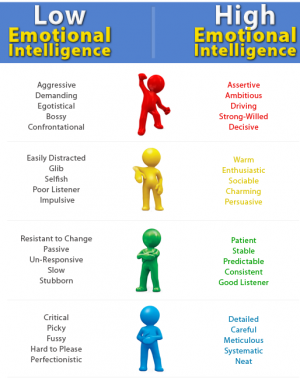 This is the kind of book that teaches emotional intelligence. Where the things that matter only happen inside.
This is the kind of book that teaches emotional intelligence. Where the things that matter only happen inside.
You want to learn, through these books, that people think differently from you. It starts the process of taking you out from behind your eye balls.
We all need it, and need it desperately.
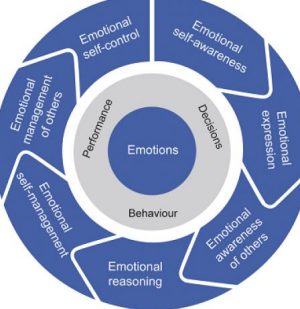 Reading books with a lot of action is actually harmful in this regard.
Reading books with a lot of action is actually harmful in this regard.
If you can manage to fall in love with looking at the inner happenings, then your whole world can get elevated.
We all want to understand, we all want clarity, we all want certainty.
Without high emotional intelligence it’s impossible. Without it you are boring, and stupid… because you don’t understand.
If we still lived in hunter-gatherer societies, you would be one of the dead ones… with no offspring to continue your blood line.
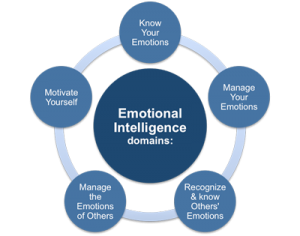 Unaware, locked into a limited perspective, thinking that is all there is, the only way anyone can look without emotional intelligence.
Unaware, locked into a limited perspective, thinking that is all there is, the only way anyone can look without emotional intelligence.
Watching movies will not add emotional intelligence skills to your skill sets, because you cannot see and hear the thought process, the internal dialog the person is having with themselves.
And here is another reason you may want to raise your emotional intelligence:
People who see things only from their own vantage point are boring…
And being boring is not what you want to be… at least I hope.
10 habits of extremely boring people
We fear boredom — that we might be bored or, even worse, bore others.
One example: For a 2014 University of Virginia psychology study, participants gave themselves electrical shocks to avoid sitting alone with their thoughts for 15 minutes.
In a similarly themed Quora thread, users discussed what makes people boring.
Here are the highlights, so that you can identify the bores in your life and avoid becoming a bore yourself.
 1. Boring people have unbalanced conversations.
1. Boring people have unbalanced conversations.
Instead of finding a rhythm between talking and listening, boring people are on either conversational extreme.
Quora user Jack Bennett calls it an “asymmetry in the conversational ‘give and take’ — e.g. all listening and no talking, or all talking and no listening.
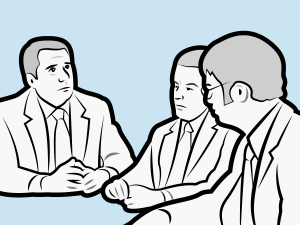 2. Boring people can’t tell if people are engaged in the conversation.
2. Boring people can’t tell if people are engaged in the conversation.
If you’re emphatically boring, you’re probably missing the other person’s signals.
User Garrick Saito argues that what makes a person boring is the “continual blathering and ignoring of signals and body language that say (perhaps not loudly enough) ‘I’m not interested in what you’re saying, but am nodding every few seconds only to be polite.'”
To avoid this, learn how to listen to what people are saying with their bodies.
 3. Boring people can’t make people laugh.
3. Boring people can’t make people laugh.
Humor shows “cognitive flexibility”: the ability to assess an idea or an event from a variety of perspectives, and then, naturally, make light of it. Boring people lack it.
“I’m an easy sell,” admits Will Wister. “I mean come on let’s face it — it’s not that hard.”
 4. Boring people always do the same thing.
4. Boring people always do the same thing.
User Andy Warwick complains of friends who go to the pub every weekend and then subsequently get frustrated when he can’t make it out to join them — since he was going to museums, reading books, or hiking around hills.
“For me what makes a person boring is living a sedentary life without variety,” Warwick says. “Diverse experiences improve one’s conversation for those weekends when you do go down the pub. You actually have something to talk about.”
 5. Boring people never have anything to say in conversations.
5. Boring people never have anything to say in conversations.
A “boor” is somebody who’s loud and insensitive to the social situation, but a boring person can also be overly circumspect.
Alexa Knowles lays it down: “Where the loud bore believes they are the most interesting person there is, the quiet bore believes it’s best to never say anything because who would want to listen to them? These are the ones that reply to every inquiry with some variant of ‘I dunno, sort of, I guess.'”
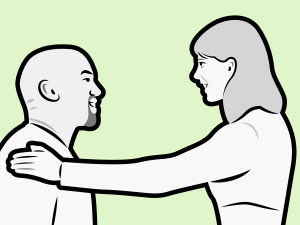 6. Boring people don’t have their own opinions.
6. Boring people don’t have their own opinions.
If you haven’t thought critically about what it is you think, you’re not going to have much to offer in conversation.
“People that do not see past what they were taught to believe” are the boring ones, says Maranda Marvin. “These people can only offer their very localized view on a variety of topics.”
 7. Boring people don’t know how to tell a good story.
7. Boring people don’t know how to tell a good story.
“To interest someone and to truly engage others, you have to be able to tell a story,” says Dave Cheng. “And you have to care about that story. You also have to solicit stories out of others. And you have to care about those stories.”
 8. Boring people can’t see things from other people’s perspectives.
8. Boring people can’t see things from other people’s perspectives.
“Boring people are usually those who can’t (or won’t) understand how the conversation is experienced from the other person’s perspective,” says Drew Austin. “The ability to place oneself in another person’s shoes makes someone interesting to talk to.” In this way, emotional intelligence is key to conversationality.
 9. Boring people don’t have anything new to add.
9. Boring people don’t have anything new to add.
Research into our brains reveals that we’re basically hardwired to seek novelty. It’s a need that’s been rattling around evolution for some 800,000 years. The conversational takeaway: If you don’t provide anything new to the listener, they’re not going to be stimulated.
“To me, a boring person is someone from whom I cannot learn anything new,” says Stan Hayward. “Thus, it takes time for me to decide someone is really a boring person, though some people give out cues pretty early in a relationship.”
 10. Boring people don’t include anybody in the conversation.
10. Boring people don’t include anybody in the conversation.
What makes someone boring is “the inability to include the others with interest into the conversation,” says Marie Holland, “which I feel usually happens when the ‘boring’ person just wants their point to be told with too much detail that isn’t relevant.”
This goes along with the empathy thing: If you can’t figure out that someone in the circle of conversation is feeling left out, you’re boring.
Article reprinted from Business Insider
In the Starting Point Measurements I measure 34 different and relevant ‘data’ about you. All of which, interestingly pinpoint where you have your emphasis so you miss reality, miss the signals visible to someone with high emotional intelligence.
It also gives you, potentially, a path to correct that.

they call that narcissistic in psychiatry. Not a prescription of worldly success, or climbing the tree of life aka raising your vibration.
all that… and allows you to never know what another’s world is like… allows you to keep thinking the same thoughts you have always thought… where it is all about you.
For the first 20 or so years of my life when people would ask me how I was I would tell them, but I wouldn’t necessarily ask that in return how they were. People asked me , I expected them to ask me; I was playing the role of the shy and sensitive person who needed to be checked in on.
Maybe the dark side or downside for underside of that was not being interested in other people. But that’s not all there is to it. Because part of it was the feeling that I didn’t have the magic to ask that question and expect that someone would give me an answer. It’s still one of those things that just seems new and odd to me every time I do it. (It’s a bit like speaking a foreign language or engaging in a foreign custom.) To be interested in another person. And to have that interest be genuine. But also that someone would think I was trustworthy enough to answer such a question, and to want to engage with me in a real exchange.
Some very deep and very strange stuff going on here. A remnant of the natural self-centeredness of the two year old, that still persists in some form.
Have you ever seen a film by Andrei Tarkovsky? Very slow. Lots of space. Not much happens. Mysterious. https://youtu.be/GM_GOpfEQUw